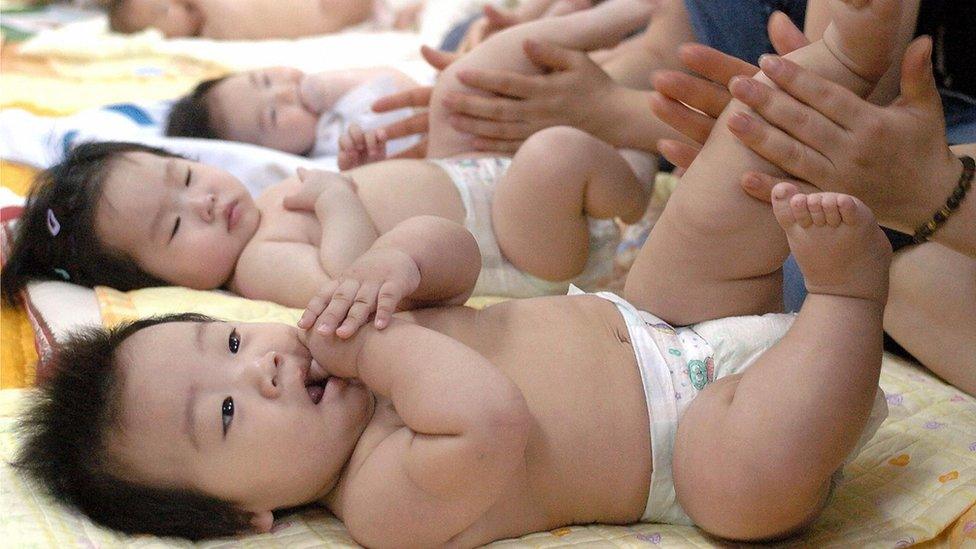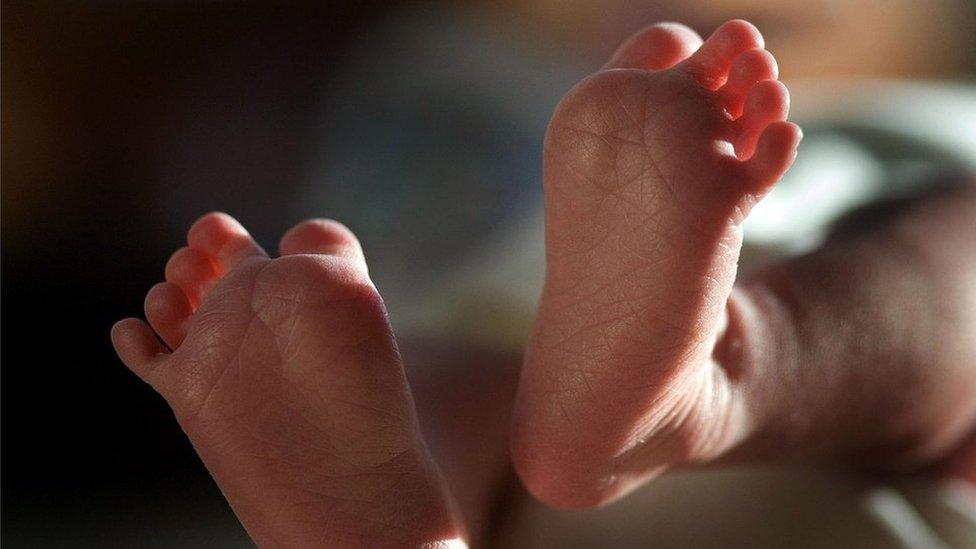South Korea birth rate plunges to record low
- Published

The country has spent billions trying to encourage people to have more children
The growth of South Korea's population this year will be the slowest rate ever recorded, despite efforts to boost it, officials say.
About 360,000 babies will be born, leading to concern over the effect of an ageing population on the economy.
Officials blame rising youth unemployment.
But couples say the rising cost of living, including housing and soaring education prices, means that having a large family is not an option.
Women have additional concerns over weak maternity-leave policies and a stubborn resistance by men to help with the housework, BBC World Service Asia-Pacific editor Celia Hatton says.
It is the first time the number of births in a year has fallen below 400,000.
South Korea has spent about $70bn (£53bn) trying to boost the country's birth rate over the past decade, handing out baby bonuses, improving paternity leave and paying for infertility treatment.
Officials fear that a low birth rate could reduce the number of people in the workforce and drive up welfare costs for the increasing elderly population, undermining the potential for economic growth.
South Korea's death rate in 2016 was estimated to be 5.8 people per 1,000 of the population, or about 295,000.
- Published26 August 2016
